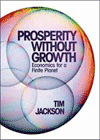Children, young people and sustainable lifestyles
Overall aims
To examine the issues confronting children and young people: their changing values, experiences, and future options for sustainable lifestyles.
Context
Young citizens growing up today inherit a world confronted by four difficult and intersecting challenges: dangerous environmental change, growing socio-economic inequality, weakened democracies and a pattern of economic growth that has delivered record levels of youth unemployment and resource extraction beyond planetary limits. There has been a growing recognition among policy-makers of the need to better understand the values and aspirations and the issues and challenges that confront children and future generations.
Research questions and methods
- What are the values and aspirations of children and young adults growing up in modern global, consumer societies?
- What are the key sustainability issues and concerns which will confront our youngest citizens and future generations across place, time and culture?
- How are children’s values and aspirations changing over time and how can we support the capacity of children to flourish as citizens growing up in a dynamic world?
Results
Findings from this cluster of projects are summarised below.
One project explored whether young people in the UK who engage in nature-based conservation volunteering activities have more affinity with nature, stronger pro environmental values, and less materialistic values and lifestyles. The findings suggest volunteers and young people who feel more satisfied with their lives are more likely to have a positive attitude towards nature, higher environmental awareness, less materialistic value orientation and demonstrate more pro-environmental behaviour. Hayward (2012) identifies factors in effective ecological citizenship amongst 8-12 year olds in developed consumer economies and develops a typology of green citizenship.
Hayward, Jackson and Evans (2011) interviewed more than 300 members of the 'shopping generation' in the UK (current and recent higher education students and graduates from professional family backgrounds who grew up during the credit boom of the 1980s and 90s). When questioned about their hopes, fears and dreams, UK respondents revealed surprisingly modest aspirations of material security, closer personal relationships, and ‘fulfilling’ rather than ‘high flying’ employment. Yet few felt they were already living their ideal lives. Many respondents struggled to achieve their green lifestyle dreams in the face of with stress, brought about by exam pressure, long hours of work or commuting, and their concerns about finding a life purpose, a significant relationship, or financial security.
Hayward, Donaldson and Okeroa (2011) interviewed 133 young New Zealanders aged 18-35 years also as part of the UNEP global survey. Overall the young adults emerged as relaxed, confident and optimistic. Given that New Zealand also has the highest youth suicide rates in the OECD, especially amongst young Maori men, the challenge for New Zealand policy makers is to ensure that the conditions that supported the flourishing of these young citizens are available to all.
Gatersleben, Jackson, Meadows, Soto, and Yan (2011) explored the materialistic and environmental beliefs among young people growing up in different modern societies (Europe and China) and how these beliefs are related to their pro-environmental intentions, consumer aspirations and lifestyles (time spent on activities). The studies showed that all young people express more generosity and positive environmental beliefs than materialism. However, while materialism was negatively related to wellbeing and pro-environmental behaviour, the pattern of relationships between environmental beliefs, attitudes towards nature and generosity vary, suggesting that environmental and materialistic concerns may arise from a differing a value basis in each country.
Hayward, Jackson and Aoyangi–Usui (submitted) examine the potential well being losses of economic growth for high achieving young adults in the UK, New Zealand and Japan and the implications of these losses for debate about sustainability, happiness and capabilities as policy outcomes of economic development. When asked to describe their worst way of living, a significant proportion of respondents from all three countries spontaneously reported fear of loss of freedom. This loss of freedom was articulated as: living without a life purpose and/or being kept from achieving their potential (or loss of agency and capability); not having meaningful choices (or loss of optionality); being unable to control their life conditions and/or unable to live according to their values (or loss of control. The authors consider whether current models of economic growth may be eroding the aspirations of young citizens
Outputs
Gatersleben, B, T Jackson, J Meadows, E Soto and L Yan 2011. Young People, Consumption and the Environment (in review).
Green N and Hayward B (in review) Challenging the control of children and young people’s access to and use of public space Local environments.
Gatersleben, B, J Meadows, W Abrahamse and T Jackson 2008. Materialistic and environmental values of young volunteers in nature conservation projects. RESOLVE Working Paper Series 07-08. Guildford: University of Surrey.
Hayward, B, T Jackson and D Evans 2011. UK Youth: the conflicts of contemporary lifestyles. Visions for change: Global Survey of Sustainable Lifestyles UNEP. Paris: 99-105.
Hayward, B, H Donaldson and E Okeroa 2011. Flourishing: young lives lived well in New Zealand. Visions for change: Global Survey of Sustainable Lifestyles UNEP Paris: 56-61.
Hayward, B 2012. Children, Citizenship and Environment: Nurturing a democratic imagination for a dynamic world. Taylor Francis/Earthscan, London.
Hayward, B, T Jackson and M Aoyangi-Usui. Beyond happiness: how children of the market understand freedom, agency and optionality in Japan, New Zealand and the United Kingdom.





